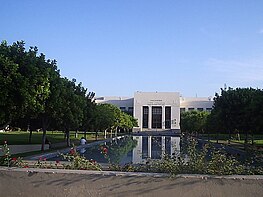Still working to recover. Please don't edit quite yet.
Communist Party of Colombia
The Communist Party of Colombia (Spanish: El Partido Comunista Colombiano, PCC) was formed on July 17, 1930 from the revolutionary wing of the Colombian socialist party, emerging out of a socialist movement which had arisen in the 1920's. In 1935 the Communist Party of Colombia (PCC) was accepted in the Comintern. In 1936 the Confederation of Colombian Workers was founded, which the CPC and its Committee of Party Control was involved in. From 1937 to 1946 the PCC was represented in the Colombian parliament. The First Congress of the PCC in August 1941 passed resolutions to rally all workers of the country in the fight against anticommunism, and for political democratization.
During World War II (1939 - 1945), the CPC came under the influence of Browderism, the main spokesman of which was General Secretary of the party Augusto Duran. The Fifth Congress of the CPC in July 1947 expelled Duran and others accused of right opportunism from the party, and Gilberto Vieira was selected as General Secretary.
The party was an active participant in the 1949 armed struggle of peasants for land. In the 1950's the party was subjected to repression - many communists were killed, including eight members of the central committee. After the fall of the dictatorship of Gustavo Rojas Pinilla in May 1957, the party emerged from the underground, but was deprived of the right to participate in the government. The eighth congress of the CPC in December 1958 resolved that the primary task for the CPC was the formation of a mass party, capable of playing the role of a vanguard of the working class and all workers.
US-advised military operations by the Colombian armed forces in departments of Colombia such as Tolima which started in 1964 led to the creation of the Revolutionary Armed Forces of Colombia (Spanish: Fuerzas Armadas Revolucionarias de Colombia, FARC), which had strong connections to the PCC. In 1984, FARC signed peace accords with the Colombian government, and began working in a political coalition with the PCC called the Patriotic Union (Spanish: Unión Patriótica, UP). The UP first ran candidates in the 1996 elections. Despite all UP parties using only peaceful political methods, they were killed by their opponents even before the 1986 elections took place. Despite this, 14 UP congress members were elected to the Senate and the House, 18 UP deputies were elected in 11 departmental assemblies, and 335 UP counselors were elected in 187 councils. After this, the violence against UP increased. By the end of 1986, 3 UP congressmen had been killed, as well as hundreds of other UP elected officials and supporters.
In June 1987, the Colombian armed forces and FARC began fighting again, ending the truce. In October 1987, UP presidential candidate Jaime Pardo Leal was assassinated. By 1988, 30% of UP candidates were being assassinated even before they were elected. In March of 1990, UP presidental candidate Bernardo Jaramillo Ossa was assassinated. The UP's only senator, Manuel Cepeda Vargas, was assassinated in 1990 as well. By this time, thousands of UP candidates and supporters had been killed. All of this, along with the fall of the Warsaw Pact socialist countries, had a devastating effect on the Communist Party of Colombia.
